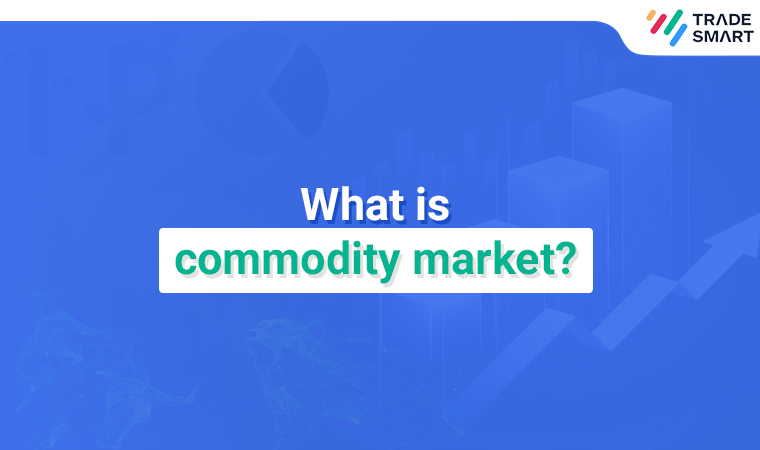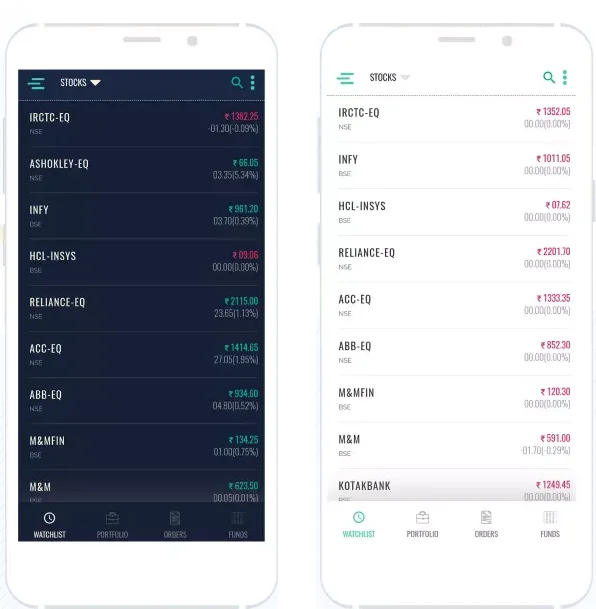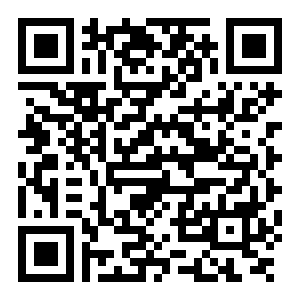What is the Commodity Market?
Feb 11 2022 5 Min Read

A Commodity market is a market where various commodities and their derivatives products are transacted in. A commodity could be any raw material or primary agricultural product that is marketable, that is, it can be bought or sold. It could be wheat, gold, or crude oil, among many others.
A brief history
The Amsterdam Stock Exchange, often considered as the first stock exchange, originated also as a market for the exchange of commodities. Early commodity trades in this market ensued in an open hall and included advanced systems such as contracts, short sales, forward contracts and even options.
At about 1864, in the United States, commodities such as wheat, corn, cattle, and pigs were extensively traded using standard instruments on the Chicago Board of Trade (CBOT), which is the world’s oldest futures and options exchange. Other food-related commodities were added to the Commodity Exchange Act and traded through CBOT in the 1930s and 1940s, the list growing to include rice, mill feeds, butter, eggs, Irish potatoes and soybeans.
Commodity Exchanges in India
Some prominent commodities exchanges have merged or gone out of business in recent years. The majority of exchanges carry a few different commodities, although some specialize in a particular group. For instance, in the United States, there is the Chicago Mercantile Exchange (CME), the New York Mercantile Exchange (NYMEX), the Intercontinental Exchange (ICE) etc.. In Europe, there is the London Metal Exchange (LME) which deals only in metals.
In India, the most famous exchange to trade in commodities is the Multi Commodity Exchange or MCX followed by National Commodity and Derivatives Exchange or NCDEX. However, there are other exchanges too that facilitate commodity trade. Other exchanges include the Indian Commodity Exchange (ICEX), National Multi Commodity Exchange in India (NMCE).
Common types of commodities traded
Some of the common types of commodities traded are as follows:
- Agricultural (e.g. soya, jeera, rice, rubber)
- Metals (e.g. industrial metals like aluminium, copper, brass and precious metals like gold)
- Energy (e.g. natural gas, crude oil, coal)
Typically, commodities trades happen as futures contracts which can either be cash-settled or undertaken as physical delivery.
Who trades in the commodity market?
Speculators, arbitrageurs and traders are found in the commodity market. Typically, a trade in the commodity market is entered into by a hedger who is seeking to mitigate the risk of price fluctuations. For example, business houses dealing in steel trade could make use of the commodity futures market to hedge their risk.
How to trade in commodity markets?
To invest in a commodities market, you first need to open a trading account with a broker of your choice who is registered with the commodities market. TradeSmart is one such broker that can help you out in this regard. Note that you only need a trading account and not a demat account because in the commodity market you are dealing with actual physical goods which cannot be converted into electronic form. Once you’ve opened a trading account, you can trade in the commodities market in two ways, through a futures contract or options contract.
This is called a derivative contract. They derive the value from the underlying asset which is the actual commodity. When you enter into a contract you enter into an agreement to purchase or sell the underlying asset at a pre-determined price at a future date.
Let’s understand that with an example. Suppose you purchase a futures contract of 20 gms of Gold for Rs. 70,000. This means that now you’ve agreed to buy the 20gms of gold at a future date. During this period, you have the option to hold on to the contract or sell it to others depending on the price fluctuations. If you hold onto the contract till the expiry then the seller would be obligated to physically deliver the specified quantity to you.
Types of traders in the commodity market
There are three main types of participants in the market
- Speculators – They are the ones who constantly examine the price changes in the market and play a role in forecasting the future price of the commodity. For example, if a speculator thinks that the price of gold is going to rise then they will purchase a commodity future contract. If gold prices do move higher, then the trader will benefit when he sells it. If the price goes down, the trader will end up in a loss if he decides to sell. Normally, exiting from a bad position early is better than hoping to wait for the price to recover.
In case of a short position, if a trader expects prices to fall he will sell a futures contract and will benefit if the price does go down. Once the price falls, speculators buy the contract again for a lower price than what they sold it for.
- Hedgers – Those who manufacture the goods usually follow this type of trade. They hedge their risk by trading in the commodity futures market. Meaning they don’t want to face the loss of selling the product for a lower price in case the price of the commodity falls in the future.
- Arbitrageurs – These are traders who take advantage of price differences between two different exchanges. Suppose if gold prices are moving higher in India but is flat in the American market, the trader would buy in the US and sell in India. He will off course take a position in the currency market to take care of the currency risk.
Benefits of commodity trading
Diversified portfolio – Commodity returns aren’t related much to other assets in the stock market. Thus, being an individual asset class, commodities can be considered to diversify your investment portfolio.
Inflation safeguard – Commodities are considered a good hedge against inflation as typically, their prices tend to rise during periods of high inflation and enable maintain purchasing power parity.
Hedging – Stakeholders in a commodity have an avenue to hedge their position in the commodity market. A farmer would like to lock his price whenever the price rises, knowing fully well that during harvest season price normally falls on account of increased supply. Similarly, a baker would like to lock his price during harvest season when prices are low. The farmer would sell futures roughly while a baker would buy a futures contract to hedge their position.
Disadvantages of Commodity trading
As with any product, commodity trading has a flip side too.
- Commodities trading can be very volatile and lead to quick losses in a short span of time.
- Since it is concentrated in a few industries, it may not provide a strong diversification advantage.
Some things to keep in mind
- Just like stocks, there are many factors involved in the price changes in the commodity market. Hence it is important that you do proper research before investing in the commodities market.
- While there is higher leverage in commodity trading, there are equally high risks in the market as well.
- If you are new to commodity, it is advised to take the help of those who are experienced and can guide you to do better trading and help you keep a tab on the market.
In conclusion
Trading in the commodity market is a great way to tackle inflation as the cost of commodities when inflation rises. However, they are equally prone to high risk as well. Despite all this, the commodity markets have grown over 120 times since the launch of electronic trading in 2003 and provide excellent opportunities to create wealth in your portfolio.
Frequently Asked Questions
There are three ways to do so. One is actually buying the commodity, the other is through F&O trading or through mutual funds or ETF
While commodity trading gives a benefit of lower leverage while trading, the risk involved is equally high. A lot of factors like inflation, political factors, foreign events etc play a role in the price fluctuations in the market.
Just like in the stock market, you can use fundamental analysis and technical analysis to study the commodity market.
An MCX demat account is an account specifically opened in the commodity market to help you trade in the commodities market
The commodity market is just like any other market where it’s a physical or virtual space where instead of stocks, commodities are traded at the current prices through derivatives trading.

